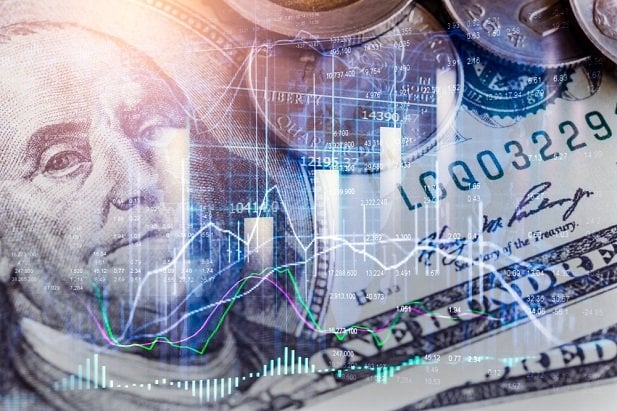 Source: Shutterstock.
Source: Shutterstock.
Retail sales fell for the second month in a row in March, leading a NAFCU economist to say it shows a rising risk of a recession starting as early as this summer.
The U.S. Census Bureau on Friday provided an advance estimate of $691.7 billion in retail and food services sales in March, down 1.0% from February after adjusting for seasonal variations, but not inflation. Those sales were up 2.9% from March 2022.
Recommended For You
It was the second month in a row of month-to-month declines. Revised figures showed sales fell 0.2% from January to February, an improvement from last month's estimate of a 0.4% drop.
"These readings indicate that months of rising interest rates, in conjunction with persistent inflation, have begun to meaningfully erode the financial dexterity of average consumers," NAFCU Economist Noah Yosif said.
 Noah Yosif
Noah Yosif CUNA and the Mortgage Bankers Association last October forecast a recession would start early this year. They later shifted the start to late this year.
NAFCU has forecasted a slowdown this year, but not a recession. However, it has been signaling a greater risk of one in recent weeks. Yosif's remarks continued that trend.
Yosif said consumer spending has been "the primary counterweight against laggard business investment and reduced monetary and fiscal stimulus over the past half-year."
A continued drop in spending could precipitate economic contraction starting as early as this summer. These and other data points show the odds are rising for a recession, he said.
Whether a recession occurs, he said, depends on the severity of a downturn in consumer spending and other factors, and "the flexibility of monetary policy through the Federal Reserve."
Sales, excluding automobiles and parts, hit a peak in May 2022, rising 13% from May 2021. That gain has been dwindling in each month since then. March sales were up just 3.8% from a year earlier.
Most of this definition of retail spending can be done on debit or credit cards — spending that is reported on an unadjusted basis by credit union groups.
Co-op Solutions, a payments CUSO based in Rancho Cucamonga, Calif., on Thursday reported that March spending by members of credit unions it served rose 1.1% from a year earlier on debit cards, and rose 2.4% by credit card.
Spending at restaurants rose sharply, while spending dropped 11% for gasoline by debit or credit. Spending on groceries was in the middle: Up 2.7% by debit and up 4.3% by credit.
© Touchpoint Markets, All Rights Reserved. Request academic re-use from www.copyright.com. All other uses, submit a request to [email protected]. For more inforrmation visit Asset & Logo Licensing.







